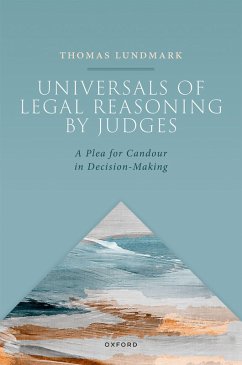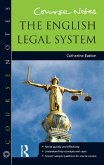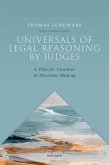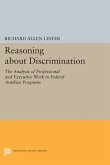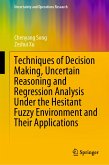Universals in Legal Reasoning by Judges explores and expounds the usage of rules to justify judicial decisions. Inspired by Savigny's canons of interpretation, and informed by the author's years of study and teaching in Germany, the book constructs a matrix for all legal argumentation in place of the so-called rules of interpretation, classifying justificatory arguments into four categories: textual, historical, purposive, and system-contextual. Along these categories, the book reveals certain universals while dispelling the confusion and mystery surrounding reasoning from judicial case decisions. This it does — simply and elegantly — by equating reasoning from case decisions with reasoning from statute. A myriad of examples, primarily from Germany, California, and the United Kingdom, show how these arguments find universal application. From start to finish, this book is itself an argument: an argument for judicial transparency and candour, which requires that judges reveal their thoughts and motivations-their ultimate reasons. This is necessary to enhance the persuasiveness and efficacy of judicial precedents, to foster democratic legitimacy, and to permit political accountability.
Dieser Download kann aus rechtlichen Gründen nur mit Rechnungsadresse in A, B, BG, CY, CZ, D, DK, EW, E, FIN, F, GR, HR, H, IRL, I, LT, L, LR, M, NL, PL, P, R, S, SLO, SK ausgeliefert werden.

